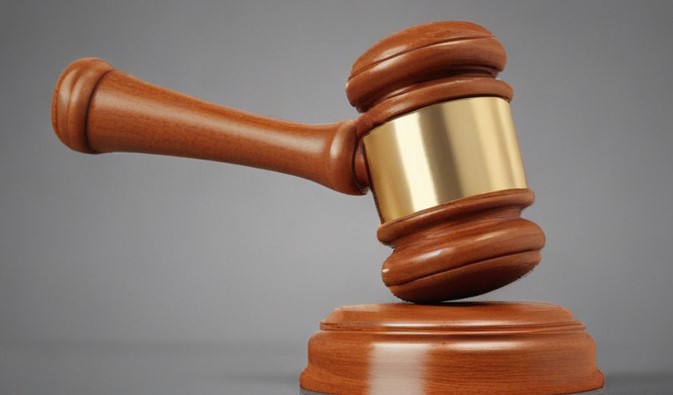
Air conditioning is essential for comfortable living, especially during Brisbane’s hot and humid summers. But when an air conditioning unit breaks down in a rental property, the question arises—who is responsible for fixing it? The answer depends on tenancy laws, lease agreements, and the specific circumstances of the repair.
Understanding these responsibilities helps tenants and landlords avoid disputes. If you’re considering installing a new system or upgrading an old one, consulting a professional aircon installer Brisbane ensures efficiency and compliance with regulations.
What Does the Law Say?
Queensland’s Residential Tenancies and Rooming Accommodation Act 2008 outlines both parties’ responsibilities regarding property maintenance. Landlords must ensure the property is in good repair and meets health and safety standards. On the other hand, tenants must take care of the property and report any maintenance issues promptly.
Who Covers Repairs for Air Conditioning?
Generally, if the air conditioning unit was provided as part of the rental agreement, it is the landlord’s responsibility to repair or replace it if it stops working due to normal wear and tear. However, if the damage is caused by negligence or misuse by the tenant, they may be required to cover the costs.
Emergency vs. General Repairs
Air conditioning issues can fall into two categories:
Emergency Repairs
According to Queensland tenancy laws, emergency repairs are those that affect health and safety or make the property uninhabitable. If an air conditioning failure occurs during extreme heat and poses health risks, it may qualify as an emergency repair. In such cases, tenants should inform the landlord immediately, and the landlord is required to act promptly.
General Maintenance
Routine maintenance and minor repairs usually fall under the landlord’s obligations unless stated otherwise in the lease agreement. Regular servicing of air conditioning units can help prevent breakdowns and ensure efficient operation.
Understanding the Lease Agreement
The lease agreement is a crucial document outlining both parties’ specific responsibilities. Some agreements may include clauses about air conditioning maintenance, such as requiring tenants to clean filters or schedule routine servicing.
How to Handle Disputes?
Disagreements over air conditioning repairs are common. If a dispute arises, tenants and landlords should first try to resolve the issue through open communication. If no resolution is reached, the matter can be taken to the Residential Tenancies Authority (RTA) for mediation.
READ ALSO: Ensuring Quality: How Consumer Protection Laws Impact Vinyl Flooring
Final Thoughts
Clear communication and understanding of tenancy laws can help landlords and tenants avoid unnecessary conflicts. Regular maintenance and well-drafted lease agreements ensure that air conditioning systems remain functional, keeping rental properties comfortable throughout the year.




 This section will examine some ways you can protect yourself and help your clients maintain theirs.
This section will examine some ways you can protect yourself and help your clients maintain theirs. 









 You might have to tow a car for any range of reasons, such as transferring, taking your car or truck along on a journey, or hauling it to a different place. No matter your motive for towing a car, you must understand to tow it. It is possible to use some tips to produce the towing procedure easier.
You might have to tow a car for any range of reasons, such as transferring, taking your car or truck along on a journey, or hauling it to a different place. No matter your motive for towing a car, you must understand to tow it. It is possible to use some tips to produce the towing procedure easier. Find out if you’re okay with the broker having exclusive representation rights or if you’d prefer to work with more than one. Know when you can end the agreement and how much it will cost you by reading the Termination Provisions.
Find out if you’re okay with the broker having exclusive representation rights or if you’d prefer to work with more than one. Know when you can end the agreement and how much it will cost you by reading the Termination Provisions.


 Vinyl flooring is a favorite for homes and businesses because it’s strong, affordable, and comes in many designs. But how can consumers be sure they’re getting a product that’s both safe and high-quality? That’s where consumer protection laws come into play. These laws are designed to safeguard consumers’ interests, ensuring that the vinyl flooring they purchase meets certain standards of quality and safety.
Vinyl flooring is a favorite for homes and businesses because it’s strong, affordable, and comes in many designs. But how can consumers be sure they’re getting a product that’s both safe and high-quality? That’s where consumer protection laws come into play. These laws are designed to safeguard consumers’ interests, ensuring that the vinyl flooring they purchase meets certain standards of quality and safety. 
 In today’s fast-paced world, it is
In today’s fast-paced world, it is  Furthermore, SEUS lighting is also known for its ability to accentuate colors and textures. By using the right combination of lights and colors, you can enhance the visual appeal of your space and draw attention to important features. Texture and depth can be brought to life, making your clients feel more connected to their surroundings. This helps create a sense of comfort and familiarity, which can lead to increased customer satisfaction and loyalty.
Furthermore, SEUS lighting is also known for its ability to accentuate colors and textures. By using the right combination of lights and colors, you can enhance the visual appeal of your space and draw attention to important features. Texture and depth can be brought to life, making your clients feel more connected to their surroundings. This helps create a sense of comfort and familiarity, which can lead to increased customer satisfaction and loyalty.


 The legal industry is embracing the power of online marketing to expand its reach and connect with a wider audience. One effective strategy gaining momentum is blog outreach services. By leveraging the expertise of the best Blogger Outreach Services in 2023, law firms can enhance their online presence, engage potential clients, and establish themselves as thought leaders in their respective fields.
The legal industry is embracing the power of online marketing to expand its reach and connect with a wider audience. One effective strategy gaining momentum is blog outreach services. By leveraging the expertise of the best Blogger Outreach Services in 2023, law firms can enhance their online presence, engage potential clients, and establish themselves as thought leaders in their respective fields.












